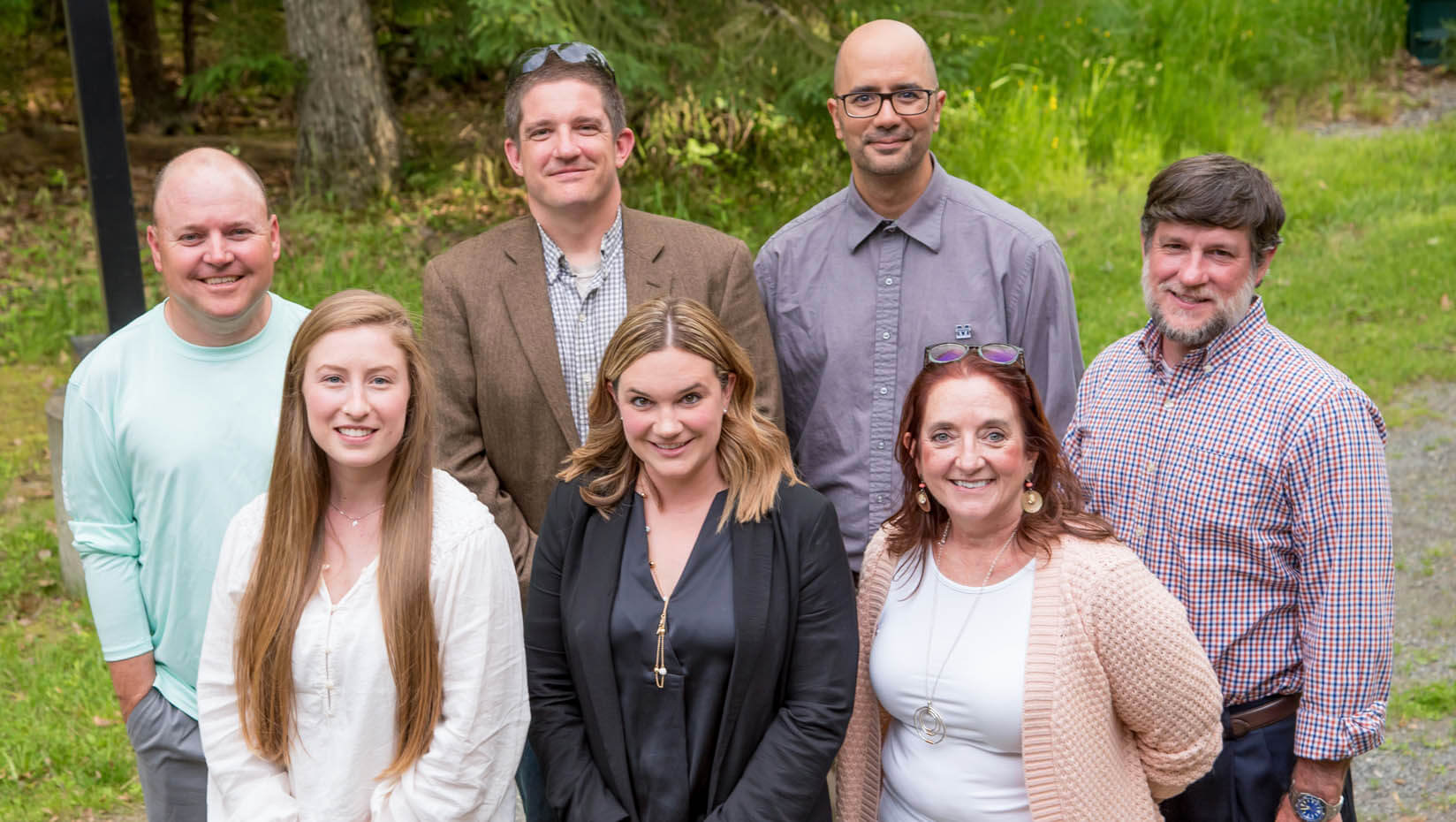
Fifth cohort of MIRTA accelerator teams wraps up work
Four faculty-led teams pursuing commercialization of research projects are ready for the next steps in that journey having completed the University of Maine’s 2022 MIRTA accelerator program. The teams presented their projects at a Demo Day event earlier this month, marking the conclusion of this year’s program.
The 2022 MIRTA teams, the fifth cohort to complete the program, are exploring innovations in accessibility education, aquaculture, computer-aided breast cancer detection, and marine sciences. (Please see below for detailed team descriptions and links to their Demo Day pitches.)
“The latest MIRTA projects showcase how research innovations from Maine’s public universities can meaningfully impact a range of crucial business sectors in Maine, from aquaculture and marine research to biomedicine, education, and forest products,” says University of Maine director of business incubation Veena Dinesh. “I am always impressed by the entrepreneurial mindset our researchers bring to this program and by their commitment to investigating and realizing the commercial potential of their work.”
MIRTA was designed to assist University of Maine System researchers to advance lab discoveries into public and commercial use, and the program has expanded to support innovations from other Maine research institutions. The accelerator is administered by the Office of Innovation and Economic Development (OIED) out of the Foster Center for Innovation, with support from Maine Technology Institute and the University of Maine System Research Reinvestment Fund. Over the course of the program, guided by program staff and external advisers, teams engage in customer discovery, market analysis, prototyping, partnership development and technology evaluation to map strategies for bringing their research to market.
In addition, each team has an advisory committee of industry and technology experts who provide feedback and advice. The teams are eligible for up to $25,000 each to help develop commercialization implementation plans. Commercialization plans vary depending on the type of invention a team brings to MIRTA, and the end result could be starting a new company or licensing to an existing one.
MIRTA is among several commercialization programs offered by the Office of Innovation and Economic Development. Researchers are encouraged to participate in the Commercialization Training Series, a webinar series providing topical overviews on subjects ranging from idea validation to intellectual property. UMaine’s I-Corps site program is the next step, helping research teams explore commercialization potential with grant funding available through the National Science Foundation. The MIRTA accelerator helps I-Corps participants build on their knowledge and move their ideas even closer to realization.
From the 21 teams in the five MIRTA cohorts to date, seven new startups have been formed, eight patents have been filed or issued, and the teams have collectively raised more than $2.5 million in external funding and prototype sales to support ongoing commercialization. Companies that have been formed after participation in MIRTA include Neuright, winner of the $25,000 David Shaw prize at the statewide Top Gun accelerator program in 2019, and UNAR Labs, selected to join the first cohort of the Roux Institute Startup Residency Program in 2021.
The next MIRTA cohort is scheduled to begin in early 2023. For more information about the program, contact Veena Dinesh at veena.dinesh@maine.edu.
The MIRTA 5.0 Cohort
Future Fish Tags
Watch the Future Fish Tags pitch
Future Fish Tags is pursuing commercialization of an improved tag dart for aquatic research. This biocompatible implant made from printed titanium foam metal improves tissue integration and animal welfare, and maximizes the retention of conventional and electronic tags used on aquatic animals.
Team: Walt Golet, assistant professor of marine sciences, University of Maine and Gulf of Maine Research Institute; Sammi Nadeau, Pelagic Fisheries Lab technician; with external partner Brian McLaughlin, founder and CEO, Amplify Additive
Oyster Pod
The Oyster Pod is a 3D-printed aquaculture tank insert made from forest product feedstocks and bioplastic that is designed to maximize oyster growth and improve efficiencies for Maine’s small shellfish farmers.
Team: Doug Gardner, professor of sustainable materials and technology; Matthew Nixon, Ph.D. candidate, aquaculture and aquatic resources, and owner of Muddy River Farm Aquaponics
WAVED Medical
WAVED is a patented risk-assessment technology that uses a patient’s mammographic history and clinical data to identify the physical markers believed to be linked to malignant tumor onset and growth, leading to early detection of breast cancer.
Team: Andre Khalil, professor of biomedical engineering, University of Maine; Kendra Batchelder, interdisciplinary Ph.D. candidate in computational biomedicine
Wheelchair Odyssey
Watch the Wheelchair Odyssey pitch
Wheelchair Odyssey is pursuing development and commercialization of immersive software to simulate wheelchair navigation in inaccessible, real-world settings. Designed for students in higher education so they can experience the everyday obstacles that wheelchair users face and learn about related Americans with Disabilities Act access requirements, the software aims to deepen understanding of wheelchair use to increase accessibility and inclusion.
Team: Karen Barrett, professor and program coordinator of rehabilitation services, University of Maine at Farmington; J. Chad Duncan, chair/program director, orthotics and prosthetics, Salus University; with external partner Avery Olmstead, accessibility subject matter expert
Contact: Ashley Forbes; 207.581.1429; ashley.forbes@maine.edu
